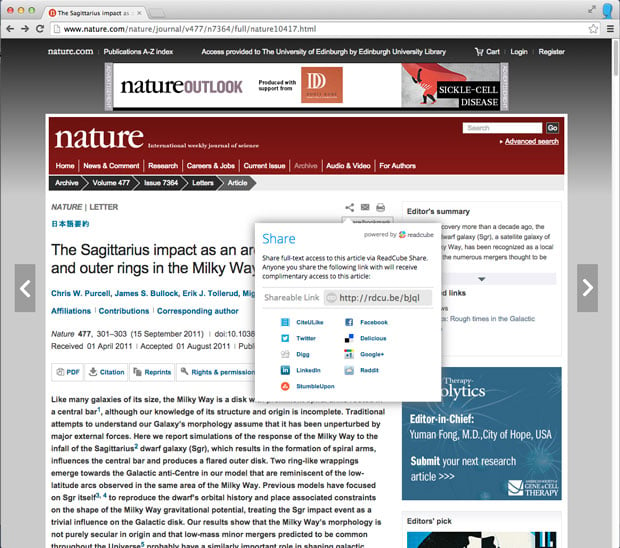"Nature" is Feeling Generous, Makes All Articles Dating Back to 1869 Free to View
Scientists are getting a new tool for sharing information from the publisher of Nature. Macmillan is making all articles available to subscribers in a digital format and is encouraging them to share articles with colleagues both in and out of its subscriber network.
The publisher will also let news organizations link to its articles (so their readers can enjoy them without a subscription), potentially introducing the scientific journal to new audiences.

Macmillan is making it easy to share Nature articles. Image credit: Macmillan
“We exist to serve the information needs of researchers, to help them in their work, and ultimately in making discoveries in order to improve the way we all live,” said Annette Thomas, CEO of Macmillan Science and Education in a statement.
Macmillan is opening all 49 of its journals to this program. The publisher is delivering Nature articles via ReadCube. Scientists can share the articles in read-only formats and will soon be able to annotate articles, which Macmillan hopes will improve communication among scientists. Printing will be disabled, however.
The publisher has stressed that its goal is to make the works available for personal, non-commercial use. The program for providing links to news organizations will include about 100 magazines and blogs, Macmillan said.

Users will be able to read the articles via ReadCube. Image credit (for all images in this story): Macmillan
Nature is an interdisciplinary journal that has a reputation for covering big stories, such as Dolly the cloned sheep and mapping the human genome. Despite being a scientific journal, Nature also has a large audience of non-scientists.

